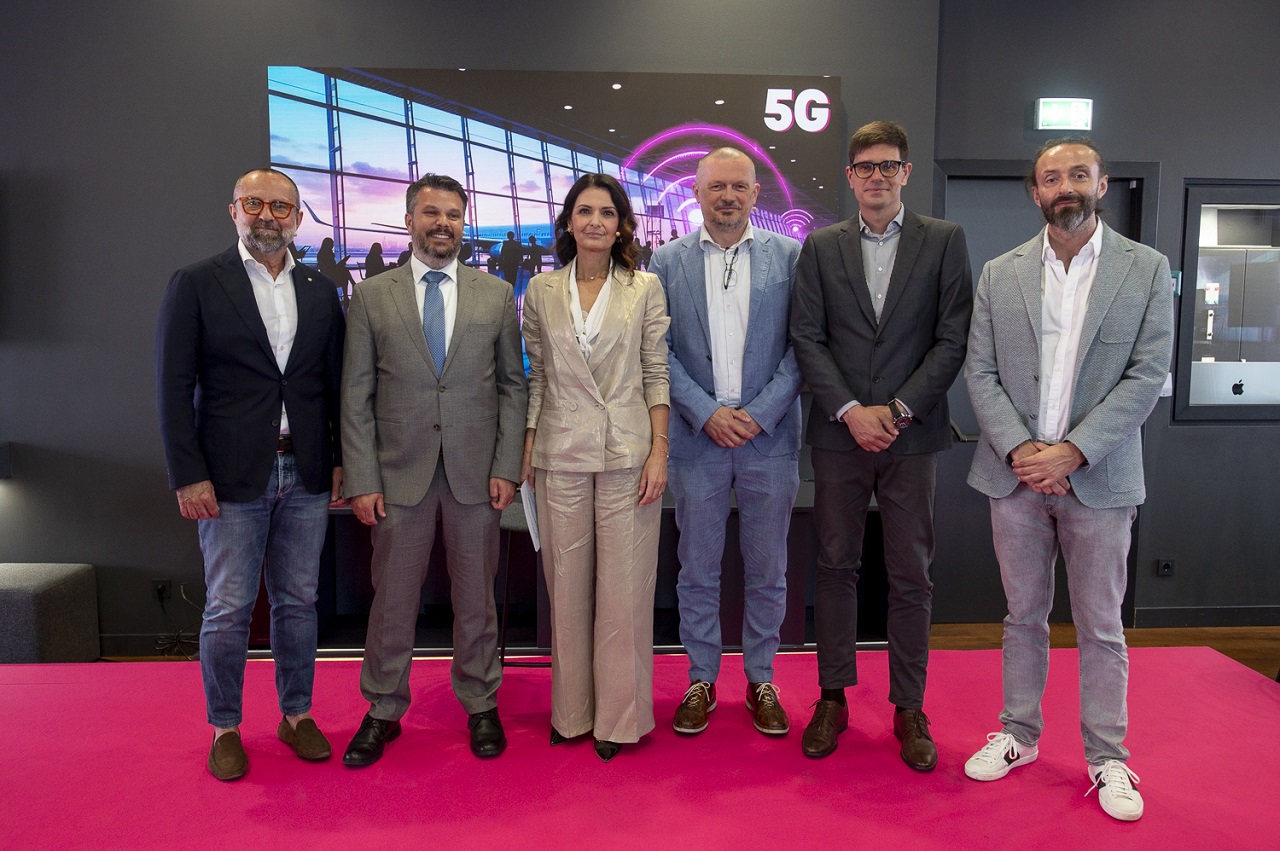AeroGenie — Il tuo copilota intelligente.
Tendenze
Categories
Hrvatski Telekom and Markoja Advance Airport Digitalization with Private 5G and AI

Hrvatski Telekom and Markoja Advance Airport Digitalization with Private 5G and AI
Hrvatski Telekom, in collaboration with Markoja—the Faculty of Transport and Traffic Sciences in Zagreb—and the airports of Zagreb, Zadar, and Pula, has launched the 'NextGen 5G Airports' project. This €5.6 million initiative aims to deploy private 5G networks across Croatia’s principal airports to enhance operational efficiency, strengthen security measures, and elevate the passenger experience through cutting-edge digital technologies.
Transforming Airport Operations with Private 5G and AI
The implementation of private 5G networks grants airports comprehensive control over their communication infrastructures, encompassing planning, deployment, daily management, and future upgrades. This autonomy facilitates accelerated digital transformation, improved security protocols, and customized solutions tailored to the needs of airlines, operators, and passengers alike. With Zagreb Airport accommodating over 4.3 million passengers annually, Pula Airport handling approximately half a million, and Zadar Airport reaching a record 1.5 million passengers last year, the demand for reliable and scalable connectivity is increasingly critical.
The project integrates artificial intelligence (AI), machine learning (ML), and advanced analytics to optimize airport operations. At Zagreb International Airport, drones equipped with ultra-high-definition cameras and AI-driven analytics will expedite inspections of 14 kilometers of fencing and nearly 189,000 square meters of runway. This technology enables real-time detection of anomalies, enhances data accuracy, and provides actionable insights for maintenance and security teams.
Similarly, Pula Airport, anticipating 8,200 operations in 2024, will deploy a network of 50 ultra-high-definition cameras and radar cross-section (RCR) sensors along its 10.5 kilometers of security fencing. These devices, integrated with AI software, will identify damage and intrusions caused by humans or animals, delivering immediate alerts and maintenance recommendations. At Zadar Airport, which expects close to 8,000 operations this year, staff will utilize industrial tablets running AI applications to automate runway and fence inspections, streamlining data collection and reporting processes.
The convergence of private 5G with AI and ML facilitates seamless, real-time data exchange between aircraft and ground personnel. The adoption of augmented and virtual reality (AR/VR) technologies further enables airlines to anticipate equipment malfunctions and accelerate repair workflows, thereby minimizing downtime and reducing unexpected delays. These advancements promise substantial cost savings and improved satisfaction for all airport stakeholders.
Competitive Landscape and Strategic Outlook
Hrvatski Telekom’s initiative emerges amid intense competition from established global players such as Nokia, Ericsson, and ZTE, who maintain strong footholds in private 5G technology markets. These competitors are likely to respond with strategic partnerships or investments to bolster their offerings. While the market remains optimistic about the potential for enhanced connectivity and operational efficiency, challenges persist regarding system integration, cost management, and regulatory compliance. To secure a larger share of the expanding B2B market for advanced connectivity and AI solutions, Hrvatski Telekom must address existing gaps in innovation and technical expertise.
Marijana Bačić, Member of the Management Board of Hrvatski Telekom and Director of Combis, underscored the company’s strategic emphasis on flexible private 5G solutions aimed at digitalizing critical airport processes, including staff scheduling and predictive maintenance. She stated, “Investments in private 5G networks allow Croatian airports to transform and be prepared for future challenges, while ensuring sustainable growth and competitiveness.”
Miran Gosta, Director of the Croatian Regulatory Authority for Network Industries (HAKOM), highlighted Croatia’s capacity to allocate spectrum for private 5G networks at micro-location levels under favorable regulatory conditions. He also noted the availability of European financial instruments that support such initiatives.
As airports worldwide pursue modernization, Hrvatski Telekom’s project positions Croatia at the forefront of digital transformation in the aviation sector. The ultimate success of this endeavor will depend on the company’s ability to innovate and maintain competitiveness in a rapidly evolving technological landscape.

Emirates Unveils Cabin Design for New Boeing 777X

Eighteen Years On, the Airbus A380 Remains Central to a $34 Billion Airline

How a boom in luxury airline seats is slowing down jet deliveries

Navitaire Outage Attributed to Planned Maintenance

DigiYatra Debuts Outside Aviation at India AI Impact Summit

Vietnam Orders Strengthen Boeing’s Commercial Outlook

Airbus Signals Uncertainty Over Future A400M Orders

JobsOhio Awards $2 Million Grant to Hartzell Propeller for Innovation Center

Collins Aerospace Tests Sidekick Autonomy Software on YFQ-42A for U.S. Air Force CCA Program

How the Airbus A350-1000 Compares to the Boeing 777
